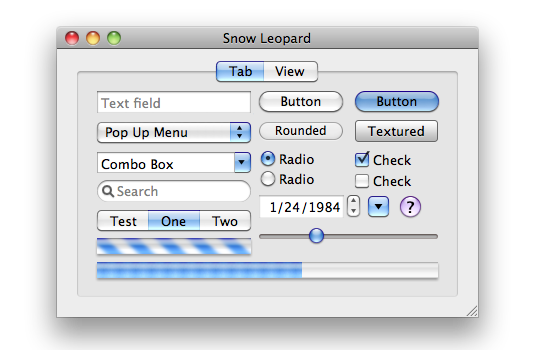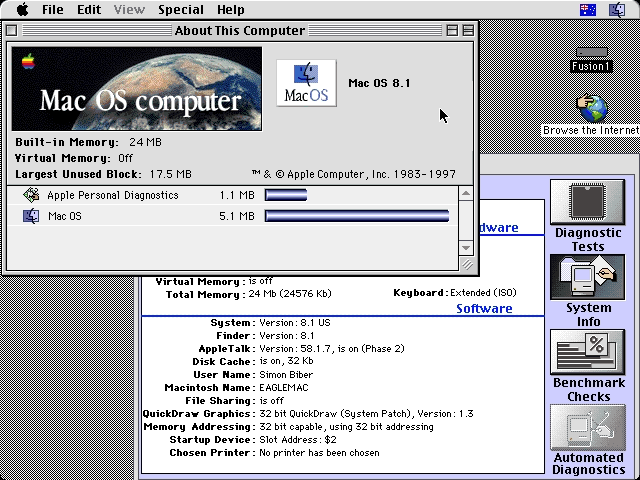

- #Names for the mac os gui interfaces how to
- #Names for the mac os gui interfaces password
- #Names for the mac os gui interfaces download
Ssh routes and measure transit delay of packets.ĭisplay processes with the highest memory usage Move specific file extensions from one folder to another Furthermore, the commands are segregated based on their utility. Impressed with all that you can do with the above Terminal Commands? We have curated and compiled the most useful macOS Terminal commands in the table below. SAY “HELLO, IGEEKSBLOG” Terminal commands ready reckoner You can make your Mac say anything you want by using the say command followed by the words. This is the coolest command that macOS provides. Replace original with the current directory and new with the name of the directory to which you want to copy the contents. Type in the following command:ĭitto -V ~/original/folder/ ~/new/folder/ Copy contents from one folder to anotherĬopying contents from one place to another is fairly easy with Terminal. Sudo sysctl debug.lowpri_throttle_enabled=1 11. But do you know? You can speed up time machine backup using the terminal by this command. The easiest way to take a backup is to use Time Machine. Whenever you’re updating the Mac to the new version, backups are essential. Just as shut down, you can restart your Mac by To shut down your mac with CLI (Command Line Interface) aka Terminal, use. However, we already have a detailed guide on how you can access, copy, or move data to your iCloud Drive, which you can check out anytime. To access the data from your iCloud Drive, use the following command.Ĭd ~/Library/Mobile\ Documents/com~apple~CloudDocs/ Use “False” instead of “True” in the above command to hide files again. Before deleting anything, run a Google search. Now you will get to see all the hidden files.Ī word of caution: Don’t delete important system files.

The solution for this is the below Terminal command that lets you view hidden files.ĭefaults write AppleShowAllFiles -bool TRUE However, the feature becomes a limitation whenever you want to view hidden files on an external drive. The fail-safe mechanism assures that you don’t delete a system file by mistake. Interestingly you can also change the extension of the output file. In other words, you need to mention the origin and target file names. Specify the origin in the source folder name. Swap Output folder name.zip with the desired name. You need to navigate to Desktop and select the folder using the below command.

Using Terminal, you can compress and password-protect the folder.
#Names for the mac os gui interfaces password
You can share the password separately with recipients. I recommend password-protecting sensitive data before sharing it with anyone.
#Names for the mac os gui interfaces download
Note: If you want to download the contents to any other directory, replace “downloads” with the directory name.Ĭurl -O 6. This method is useful only if you have a direct download link. Want to download a file directly? With Terminal, you can download a file directly from the Internet. However, it is easier to use Terminal to keep your Mac awake with the following command. Of course, you can change Sleep Settings in System Preferences. It is annoying when your Mac goes to sleep when you are off for a short break.
#Names for the mac os gui interfaces how to
Now, let’s see how to get most of Terminal! 12 macOS Terminal commands to supercharge your Mac experience 1.


 0 kommentar(er)
0 kommentar(er)
